#school of the arts institute of chicago
Text
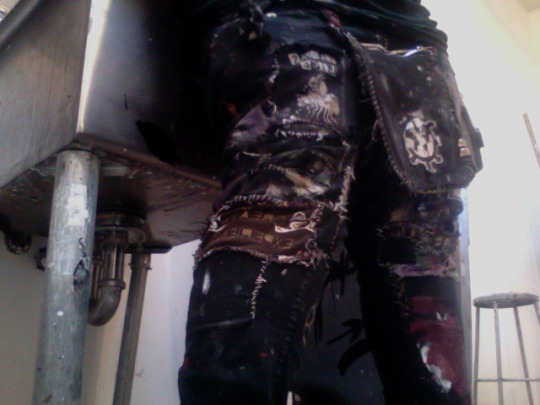
꧁★꧂
#pants#punk#goth#emo#punk fashion#fashion#handmade#diy#crust punk#distress#saic#school of the arts institute of chicago#flickr#oldweb#old web#2008
110 notes
·
View notes
Text
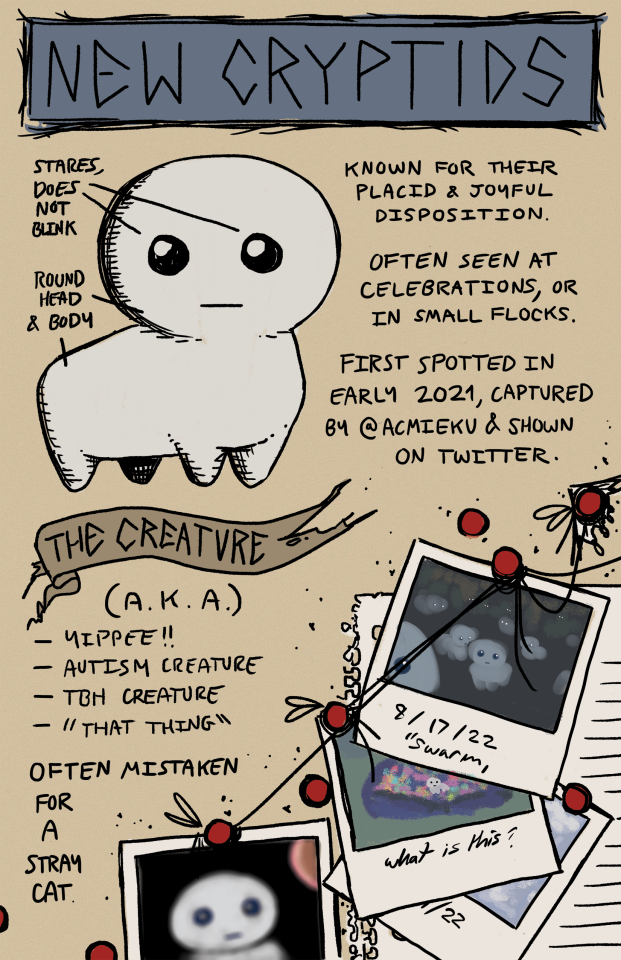
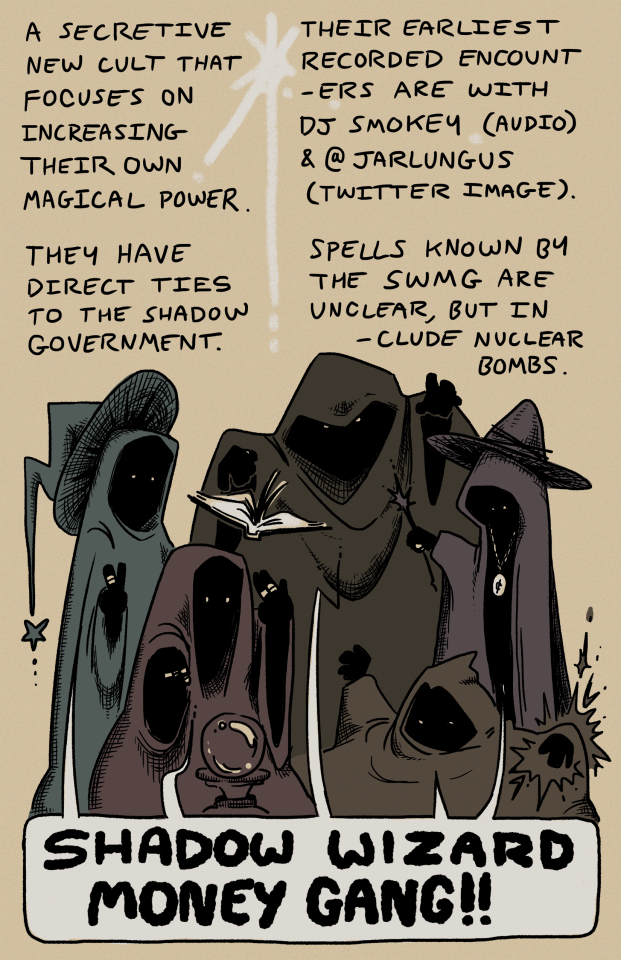
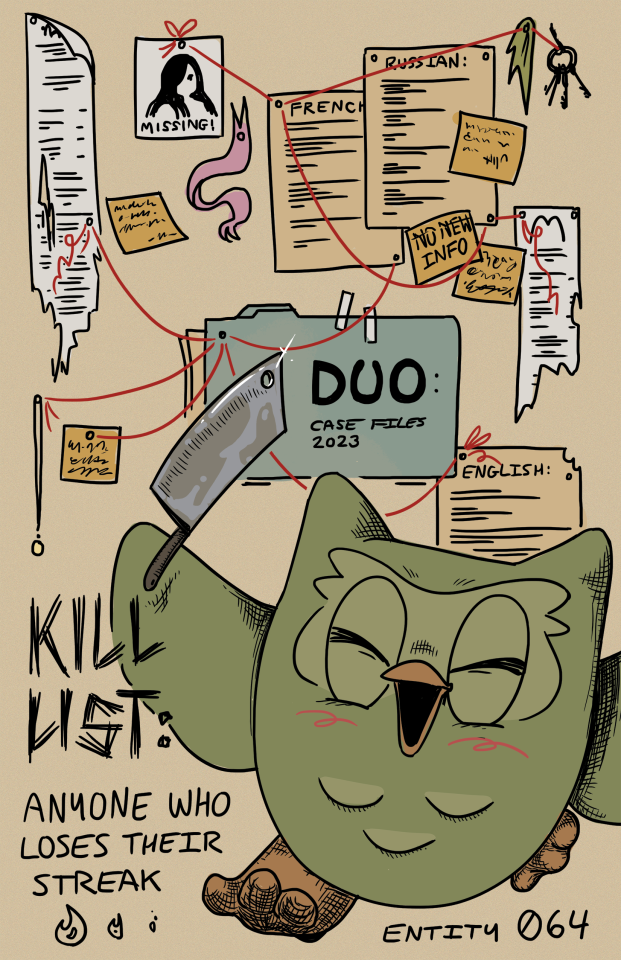
My first submission to Xerox Candy Bar has officially been published!! I'm so excited to share the Monsters & Cryptids edition with everyone on distribution day :]
Thank you so much to everyone at XCB! Y'all are amazing and i'm so interested to see what comes next 👀
#xerox candy bar#saic#school of the art institute of chicago#comic art#my art#zine#cryptids#duolingo#shadow wizard money gang#autism creature#sorry i havent been posting here much recently!! i need to get better quality scans/photos of my recent work#there may or may not be a posting spree sometime soon#been making a lot of art but mostly for class#on that college grind yk#had to compress these for tumblr btw i promise theyre less pixelly in print lol
367 notes
·
View notes
Text
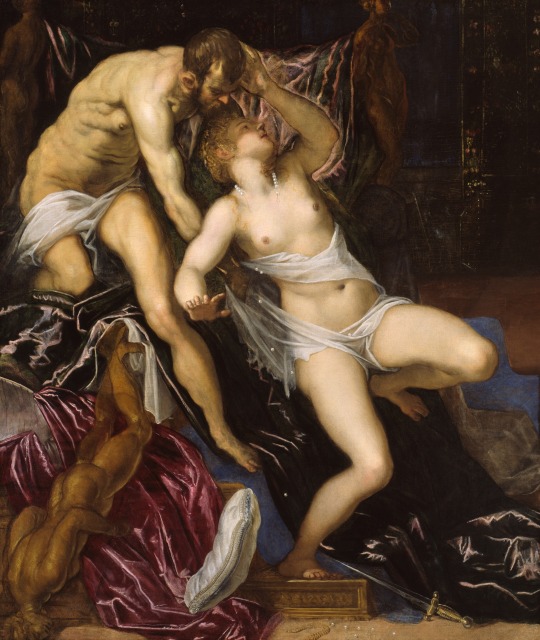
Tarquin and Lucretia by Jacopo Robusti, called Il Tintoretto
Italian, 1578-1580
oil on canvas
Art Institute of Chicago
#Lucretia#Tarquin#Sextus Tarquinius#Tintoretto#Jacopo Robusti#Italian#Venetian#art#painting#Renaissance#Mannerism#Venetian School#Art Institute of Chicago
66 notes
·
View notes
Text

Man with Lance Riding through the Snow, Adolf Schreyer, ca. 1880
#art#art history#Adolf Schreyer#genre painting#genre art#winter#winter scene#Dusseldorf School#German art#19th century art#oil on canvas#Art Institute of Chicago
92 notes
·
View notes
Text
By Kassy Dillon
A petition created in October by an SAIC alumnus calling for Tosca’s dismissal received over 2,400 signatures.
In a tweet on October 10, Tosca accused Israel of “making money off of war.”
“Always has, always will,” Tosca added.

Mika Tosca accused Israel of making money off of war just days after Israel was attacked by Hamas.
Canary Mission claims Tosca retweeted an October 10 tweet that said: “how tidily should this have proceeded? this is ‘terrorism’ cos Hamas has targeted civilians. ok should they simply have declared war on their warden? would the IDF [Israel Defense Forces] have met them in formation on a field, beating drums, for a fair fight? I do not love violence but what is expected?”
Tosca’s Instagram account describes Tosca as a “radically optimistic transsexual climate scientist.”
Tosca previously worked at NASA’s renowned Jet Propulsion Laboratory before switching to SAIC. Tosca explained the 2017 career move as a way of helping scientists better communicate.
“I think artists and designers and other creatives have a really special and unique way of imagining and interpreting and analyzing our world in a way that scientists don’t always do,” Tosca told Chicago’s PBS station. “I wanted to think about new ways, or perhaps more effective ways, of ultimately getting the general public to buy into the science but also the solutions to climate change.”
28 notes
·
View notes
Photo

Possibly designed by Otti Berger, Sample (Upholstery Fabric), (cellophane, eft band, weft-float faced broken reversed twill weave), Produced by the Bauhaus Workshop, 1919-1933 [The Art Institute of Chicago, Chicago, IL]
#art#design#textile#weaving#art education#design education#school#otti berger#the art institute of chicago#1910s#1920s#1930s
35 notes
·
View notes
Video
youtube
my senior year @ SAIC!
2 notes
·
View notes
Text
If you wouldnt pull a Ferris Bueller with me, it isnt real love
#who wants to overdranatically skip school through utter shenanigans#and drive around chicago in a gaudy ferari#and go to the wonderful wonderful art institute#and get some stans
3 notes
·
View notes
Text
The Children's Hour Interview: The Right-sized Clothes
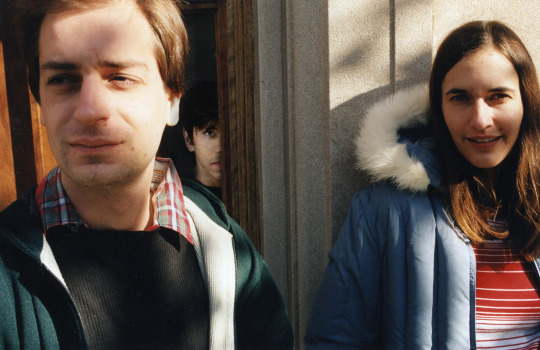
Photo by Dan Osborn
BY JORDAN MAINZER
As guitarist Andy Bar is figuring out his preferred Zoom settings, the rest of The Children's Hour are talking about animals. David Pajo's impossibly white cat Snowball has joined the picture. Josephine Foster shares a recent dream she had where she had acquired a similarly white, fluffy dog. Pajo reminisces on playing with Superwolves for actual wolves at a sanctuary in southern California. Foster remembers a time she played a show for donkeys in Spain; two of them copulated during the set. The band continues to share unique life experiences--wildlife-related or otherwise--that, were they merely the versions of themselves who had made the album we're about to talk about, even they wouldn't believe.
In what is currently being immortalized in a Bar-drawn comic on the band's Instagram page, the unlikely story of The Children's Hour is as follows: Opera school dropout Foster and School of the Art institute of Chicago student Bar were in a trio called Golden Egg that disbanded before even finishing a song. The two decided they liked writing together, so they continued as a duo, for fun. Foster would craft a song around Bar's written riffs and chord progressions. Eventually, they had some songs, settled on a band named after a Henry Wadsworth Longfellow poem, and played at open mics, bars, and basements around Chicago. They released a self-titled EP, and then an LP called SOS JFK. Legendary venue The Hideout invited them to play a variety show hosted by none other than Zwan. (That was the night they met Pajo, who lent Foster his guitar.) Zwan liked them and asked the very band who at the time were playing tiny venues, to open for them on their tour. In order to fill out The Children's Hour's sound for larger venues, Pajo played drums with them every night. The chemistry then was as palpable as it would be on a Zoom call twenty years later. Though Foster and Bar were set to move from Chicago, they liked their new sound with Pajo, as the now-trio was transforming the old songs and writing new ones. In an effort to capture lightning in a bottle, they recorded with Paul Oldham in Shelbyville, Kentucky.
Over the next twenty years, the band didn't see each other much, and nobody could find the recordings, until Oldham stumbled upon them in his archives. So the three met to mix and master at The Bomb Shelter in Nashville. Pajo asked Drag City--the same label that approached an already signed Foster and Bar that fateful night at the Hideout--whether they'd like to release Going Home, the long-awaited second album from The Children's Hour. That's how we got to where we are, with the album coming out on Drag City tomorrow.
"To me, it's a 20-year-old record," Pajo said of Going Home. "It's a document. I can't comprehend how people will take it." Listening to the record, you can certainly hear the artistic trends of the early 2000s and the indie folk of today it would go on to inspire. The interplay between Foster's wincing lead guitars and Bar's acoustic strumming on "Dance With Me" leads a slightly twee indie pop duet, an anthem for the shy. "Adoption Day", which appeared on SOS JFK, gets a spritely guitar line and coasts along Pajo's bossa nova-esque rhythms. It's also immediately apparent how the band saw their expanded sound. The slow-burning "Rainbow" builds up like Songs: Ohia, while the gentle acoustic strums, wiry bass, and whistles of "Anna"--another rerecord--becomes an upbeat rocker that's closer to that dog. than it is to Joanna Newsom.
Going Home is also a product of the band's inner monologue circa the early 2000s, especially Foster's, as she was living in a major city following upsetting events both personal (a breakup) and collective (9/11). As such, there's a sense of urban loneliness that pervades the album. Foster yearns for the wilderness on "Anna" and "Wyoming" and pokes fun at celebrity culture on "Leader Soldier". Breezy lead single "Bright Lights" is nonetheless dark, like a diary from someone's final hours on Earth. And the title track, which Foster describes as an "old-fashioned pop song," sees her screaming her words of devotion, something that could cause current devotees of her arty folk to double-take.
As it happened between albums one and two, however, songs of The Children's Hour have the potential to grow, to take on a life of their own. They'll be playing at the Hideout on March 26th, with Sabrina Rush on bass, filling out their sound even more. "Music isn't limited by things like time," Pajo said. "One could argue no music is ever finished. You could always pick it up again. There's certainly some music I'm happy to leave behind. But The Children's Hour never felt resolved. Even now, it doesn't have to be a resolution. It's got new legs."
Below, read my conversation with Foster, Bar, and Pajo, edited for length and clarity.

Andy Bar's album art
Since I Left You: A few of the songs from The Children's Hour EP and SOS JFK ended up on Going Home, rerecorded with David. When you recorded this, with a mix of new songs and old songs, were you trying to see what you had with the three of you as opposed to just the duo?
Josephine Foster: I feel like we had made our first record in sort of a rush and weren't very comfortable with the recording process. It was a lovely opportunity, but we had never done any recording in the studio or had a label. Everything felt a little unnatural, if that makes sense. It was formative to...tour with David, for me, because it felt like we finally had the balance. The songs felt in their natural position. The new songs came forth, and everything started to feel confident and make sense. The reason we made an EP first was it was a lovely introduction to this label, Minty Fresh, but we were a really new group. We were very casual. All these things happened to us swiftly, but we hadn't really had a lot of time as a band. It was just our little friendship and fun project. I hadn't sung in a microphone before. Scarcely.
David Pajo: Wow.
JF: I didn't know how to use headphones. I was trying to find my voice after opera singing. I was super self-conscious. We went to the studio, and the gentleman from the record label was well meaning, and not that he was ordering us what to do, but he was an authoritative presence. I was like, "What is this? I don't get it." I felt super nervous the whole [time]. Then, we brought in a couple drummers we had never played with. Our friend came and played bass. [We used] a click track. All of it was new to me. I didn't know Andy as well. Honestly, I never listened to records, really, in my life. I listened to classical music. When you're starting out, you don't know because you've never tried. We made the record, but it was a patchy conglomeration of these sonic experiments. For me, [the songs on the debut are] kind of a prequel. I don't even regard them as finished products. When we met David and played them on tour every night, then we became a band. Then, when we [were making Going Home], we thought, "What are the songs [best] for this trio?" It didn't matter if we had recorded one or two of them on an EP or the [first] record. That was like the wrong-sized clothes.
DP: How did [your experience with the first engineer] contrast with the engineer we worked with?
JF: I never worked with someone again who sat there as a producer in a concept role. I was really uncomfortable with that. I know it's very typical.
DP: Hearing yourself in a microphone, especially with everything you went through, there's no brochure that explains the recording process. Everything sounds so sterile and gross.
JF: It's totally sterelized.
DP: It's really a jarring experience entering a studio like that for the first time, with all these strangers telling you what to do. I'm glad that the Shelbyville recording was the opposite. It was super relaxed. It wasn't labored at all.
JF: Just live in a room together.
Andy Bar: I don't think we did that many takes of any particular song.
SILY: Does Going Home feel like your debut album, then?
JF: To me, it does. When you make a record, you want to listen back and say, "Yes, that's what I want to hear." [laughs]
DP: Also, I think having the digital files transferred to analog tape and mixed analog brought out the best of the recording. It makes it a really pleasing listen. I listen to it all the time. I almost never listen to the records I played on for enjoyment, because I can't objectify myself and separate myself from the recording. [Going Home], I'll put it on, and it changes the atmosphere in the room for whoever is present, even for my kids or anyone who has never heard it.
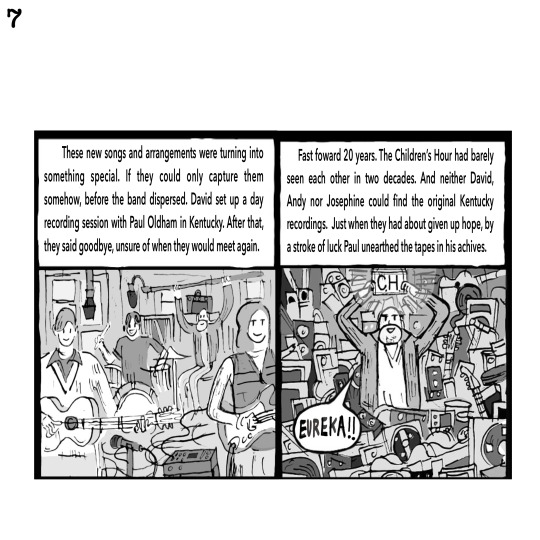
Bar's comic
SILY: You've said this record is a moment in time. Since this was recorded twenty years ago, you've all released a large number of records, especially Josephine. When you listened to these recordings for the first time after twenty years, were you immediately transported back to when you recorded them?
JF: I was transported back. I felt a sort of longing to share it. There's no smoke and mirrors. There's no studio tricks. It sounds good.
AB: When I was listening to the old stuff for the first time in a while, it did transport me back to the band that I remembered.
SILY: When I listen to it, I definitely hear the sound of other music at that time, not to say that if this was recorded in 2024 it would sound out of place. Maybe this is hindsight, but it sounds like a record from the early 2000's. For someone my age, that carries a ton of nostalgia. It's a formative era in music for me. Do you remember what inspired a lot of the lyrics and narratives at the time?
JF: There are several songs where the lyrics are about living in the city. That was towards the end of all of us being in Chicago. Andy and I, not long after, maybe within the year, moved. After [our tour with Zwan], we didn't do a whole lot. I was in other bands. I was feeling that the city, as much as I love it, was not my habitat. So there's a song about leaving Chicago, called "Rainbow", that's directly about leaving town. "Anna" is about going to live out in the wilderness alone, without a boyfriend.
DP: What's "Going Home" about?
JF: "Going Home" is an old-fashioned pop song, not too specific. "Are you going home, my darling? / Wait for me." A classic folk pop song.
DP: The eternal drama.
JF: The longing for home. "Leader Soldier", however, was a little tied into the idea of fame. That's a lyric that's a bit joking, a satire. "Hey there celebrity, lost your anonymity, cannot do so easily, the things you used to do. Can you walk in company of idleness or frivolity / Can you maintain your privacy?" or something like that. "And we can tell by your color you are of the highest order / You are now a leader-soldier." The absurdity of elevating one person over the other.
DP: The weirdness of notoriety or fame. That's super cool. I didn't realize [that's what it was about.]
SILY: You mention specific places like Chicago and Wyoming on the album, which gives a specific sense of time and place. There are also some narratives, like "Adoption Day", versus something that's more intentionally vague or universal. Was that contrast, between specific and universal, something you consciously put into the songwriting?
JF: When we first were together making songs, it was very therapeutic. We had been in a band with my ex-boyfriend, and there were all these dramas and breakups, and Andy and I stayed friends, so we thought, "Let's just play music together. A gentle place where there's no pressure." We both realized we had this thing in common: He had all these foster kids in his house, and I grew up with adopted kids. We made this song about adoption, because we were thinking of all of these themes of innocence and experience. It's a very bizarre song, in a way. The lyrics are from the point of view of me when I was adopted by my father. "Happy are we / Now we are three / A family / Mother, father." Andy would come in with these hooks, an atmosphere, and I would think, "What is this conjuring up?" I'd try to find a lyrical theme, which I hadn't done much of in my life, working with someone else's raw materials. I find it very hard. Andy's got such a beautiful, colorful, rich ideas as the compost. What do you remember about "Adoption Day", Andy?
AB: I was excited when we decided [to write about] what Josephine was talking about, because it was personal and special to me. My parents were foster parents who took care of a lot of kids.
SILY: "Adoption Day" is one of the songs on both records. I don't know whether this is merely a product of David joining, but the huge difference to me between the records is the use of dynamics on Going Home. There's a little bit of that on SOS JFK, but I was really taken by it on this record. Can you talk about the main sonic differences from your perspective?
JF: I feel like that record was sort of demos that were being supervised by some manager you don't know. There was a stiffness that loses the coherence [from splicing takes.] I don't do that at all anymore [when recording;] I just listen for the best take. We'll look for the most interesting blemishes. David is so musical and dynamic, he's feeding this brilliant energy, this thing that gives life. His presence is transformational.
AB: He just added so much. There were new songs like "Dance With Me" that we were working on that we couldn't have done without the confidence we gained on the tour and playing with David.
DP: You go from playing the Hideout to on tour with Billy Corgan. It's intense. I feel like I had the best job of all. There was the songwriting collaboration and the relationship between you guys and just the vibe. In that time, I was living in a really jaded, music business-oriented way I'm really happy to never have seen again. Children's Hour was this ray of hope and light. I felt like my job as a drummer was just to stay out of the way, almost to just be a metronome. To not caricaturize the dynamics just because we were going to be on bigger stages. Just keep it steady and quiet. I could lay into it a little bit more [live] to wake people up because they get bored and fall asleep easily. [laughs]
It was really perfect. It was done with zero ambition. It wasn't like, "We have to make a record with pop songs and make everything hi-fi." It was, "Let's record what we have because we're not going to have much time after this." I guess we knew that we were all going our separate ways afterwards or had seen we didn't have time to play together. The recording seems really light-hearted and pure in that way, too. It's what I needed at a perfect time for me, personally. Music that comes from a pure place to center me again so I'm not distracted by the garbage that comes along with being a musician. [laughs]
SILY: It's come full circle: You're playing at the Hideout next month! What's the experience been like trying to "adapt" these songs to the live stage? Are you playing songs from the first record in addition to this one?
JF: That's a very good question.
DP: I don't know if we've even gotten that far yet.
AB: We're at least playing most, if not all of the songs on the new album. From there, we'll decide how to fill out the rest of the setlist.
JF: Andy's a standup comic, so he needs to start getting some jokes ready.
DP: That's a great idea!
JF: Sabrina will be playing, so we'll be able to have David's wonderful bass lines represented live. That will be the first time we'll have heard it all live in that sense. That's the only thing we didn't record live. David put the bass lines on [separately]. I think it was in the same session, though, so it was all coherent to that moment.
DP: My idea was to put bass on all the songs. I was like, "You know what, I might have to come back to this." 20 years later, I came back to it. They were all complex to me.
JF: It was just "Rainbow" that you put bass lines on 20 years later, right? Like a little cherry on top.
SILY: This might be premature, but do you think you'll write new songs together?
AB: We're definitely gonna jam with each other and be creative together. You don't know what will come from that, but that's how we are.
DP: Relearning the songs is going to be the priority and take up most of my time. Once we're at that point and confident again, it doesn't seem like anyone's against learning a cover song or playing new songs.
SILY: What's the background behind the album art?
AB: In my head, it took place in the Hideout. It's the best I can remember, an image of playing a random club in Chicago.
DP: There's no pictures of the three of us together. You were actually drawing from memory. It's really cool. It's a nicer way than promo photos.
AB: We're relying on our mental photography. I'm also doing comics for this release drawing on our memory.
JF: We ran into this thing where Drag City kept going, "We need a photo of the band!" We couldn't photograph ourselves. We must have been right on the cusp of the digital explosion. I found one grainy photo my mother took of us all that's the only photo of us playing live. We were playing in a massive place. Nowadays, you'd have tons of photos no matter what. We must have been right before that. The Zwan fans were just jamming to us and brought their cameras out later. There's not any documentation of us live.
DP: The Internet hadn't really taken over yet.
AB: There are still pixelated pictures coming out from the time.
JF: Zwan was in the tour bus, and our car broke down after the first show. Some girl lent us her car for the whole tour. She was like, "Just take my Jeep!" We had a big atlas, would look at the city part of the atlas, go downtown, and just ask directions to get to the venue. We didn't have any GPS or anything. When I think about that, it just cracks me up.
DP: There were some soundchecks where you barely made it. You were always on time, but you had just gotten through some huge drive. Did you ever have to leave after the show while Zwan was still playing?
JF: Yeah, to go to a motel closer to where we were playing the next day.
DP: You were thrown into touring having barely played actual rock shows. It's remarkable.
JF: We regarded it as a once-in-a-lifetime thing. We weren't looking for it, and it was probably never going to come again.
AB: You guys were incredibly sweet. Of course, you probably liked our music. I liked you guys personally.
DP: For all the bands that opened for Zwan, The Children's Hour was the only one we always wanted to see and hang out with. It was always a breath of fresh air when you guys were there.
SILY: So what's this press photo taken by Dan Osborn?
JF: He photoshopped David in the doorway!
DP: Theoretically, you could have any drummer. You could photoshop John Bonham in there.
SILY: Or Neil Peart.
AB: I'll photoshop a four-armed drummer in there, Neil Peart and John Bonham.
DP: Or [Def Leppard drummer Rick Allen's] arm.
youtube
#interviews#the children's hour#hideout#drag city#the bomb shelter#going home#dan osborn#andy bar#david pajo#josephine foster#zoom#superwolves#instagram#school of the art institute of chicago#golden egg#henry wadsworth longfellow#sos jfk#zwan#paul oldham#songs: ohia#that dog.#joanna newsom#sabrina rush#billy corgan#john bonham#neil peart#def leppard#rick allen#the hideout#hideout inn
1 note
·
View note
Text

꧁★꧂
#bed#bedroom#faux fur#sewing#punk#crust punk#dorm#saic#school of the arts institute of chicago#flickr#oldweb#old web#2009
28 notes
·
View notes
Text

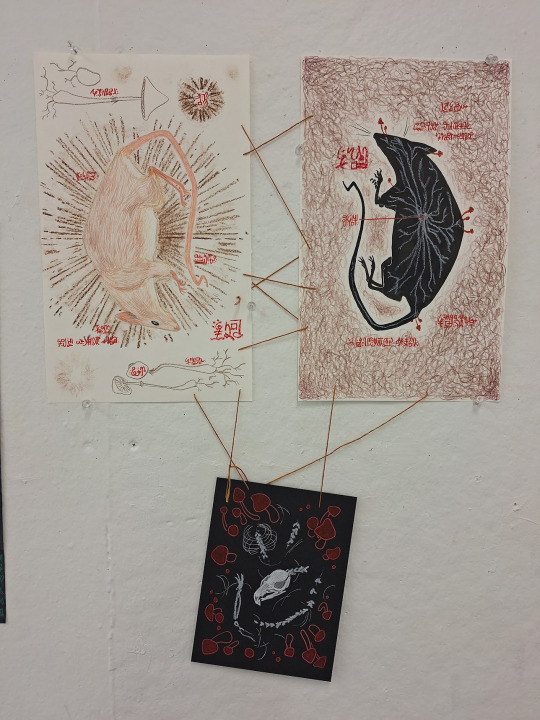

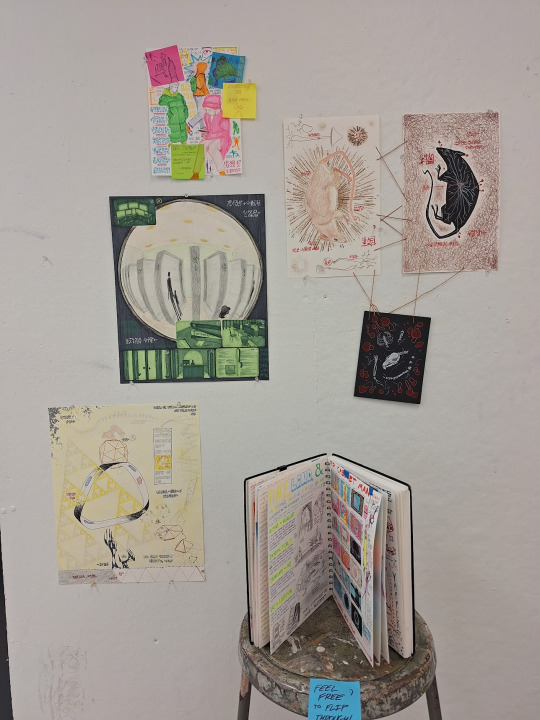
Documentation from my final critique in drawing!
I loved this class and everyone in it, critique was great and everyone's work was stunning :]
#my art#saic#drawing#school of the art institute of chicago#finals#rats#camera#conlang#highlighter#colored pencil#marker
62 notes
·
View notes
Text

Clouds over the River before Rain, Shen Zhou (1427-1509)
#art#art history#Asian art#China#Chinese art#East Asia#East Asian art#Imperial China#Ming Dynasty#Shen Zhou#Wu School#landscape#landscape painting#handscroll#ink and color on paper#15th century art#Art Institute of Chicago
143 notes
·
View notes
Text
by Kassy Dillon
On December 5th, Shiran told SAIC’s lawyers that she wanted to initiate a formal process to investigate her claims against Yi. Just two days later, Yi created the new final assignment that the lawsuit claims targetted Shiran.
The assignment showed two groups of pictures. In the first group, were images of “depictions of genital, physical, verbal or sexual abuse, violence and trauma incited [sic] on children and youth.” It includes a drawing of an Israeli father telling his son he is a “bad boy” in Hebrew.
The second set of images show Israeli soldiers being violent to Gazan families, including one of a soldier smiling while pointing a gun at someone and smiling.
A photo included in the lawsuit that a SAIC class was asked to respond to.
The lawsuit alleges that the “sudden creation” of the assignment and selection of several images about Israelis “was a transparently deliberate effort to further harass and isolate Shiran, who had just days before requested a formal investigation into Professor Yi’s discriminatory behavior.”
Rabbi Resigns From Harvard’s Anti-Semitism Advisory Committee: ‘Ignoring Jewish Suffering Is Evil’
Although the second set of images were withdrawn from the final assignment after Shiran told SAIC’s attorneys she would seek emergency legal relief, Shiran claims she continued to face harassment and retaliation from Yi.
On December 18, Yi wrote to the class to apologize to students who felt their “learning was compromised” after the second part of the assignment was withdrawn. She added that she would “very much appreciate” if students wrote to the department chair about their perspectives, according to the lawsuit.
The suit also accuses Yi of adjusting the courses grading standards to “increase the weight given to peer evaluations and feedback, class participation, and collegiality among classmates.” It added that the change harmed Shiran’s grades.

Another image Shiran was asked to respond to for her final assignment, according to the lawsuit.
“I am determined to shed light on this issue, not just for me but for everyone who faces discrimination,” Shiran said in the press release. “I believe publicizing my story is crucial to raising awareness about the recent upsurge of antisemitic discrimination in higher education institutions and more broadly.”
Shiran plans to continue studying at the school, which offers a world-class education in art therapy, according to the New York Post.
Shiran’s lawyers declined to comment further than their press release.
When requesting Yi to comment, The Daily Wire received an auto response claiming she is not available to respond during winter break and that the response is an effort “for an anti-capitalism & anti-ableism practice Inbox.”
15 notes
·
View notes
Photo
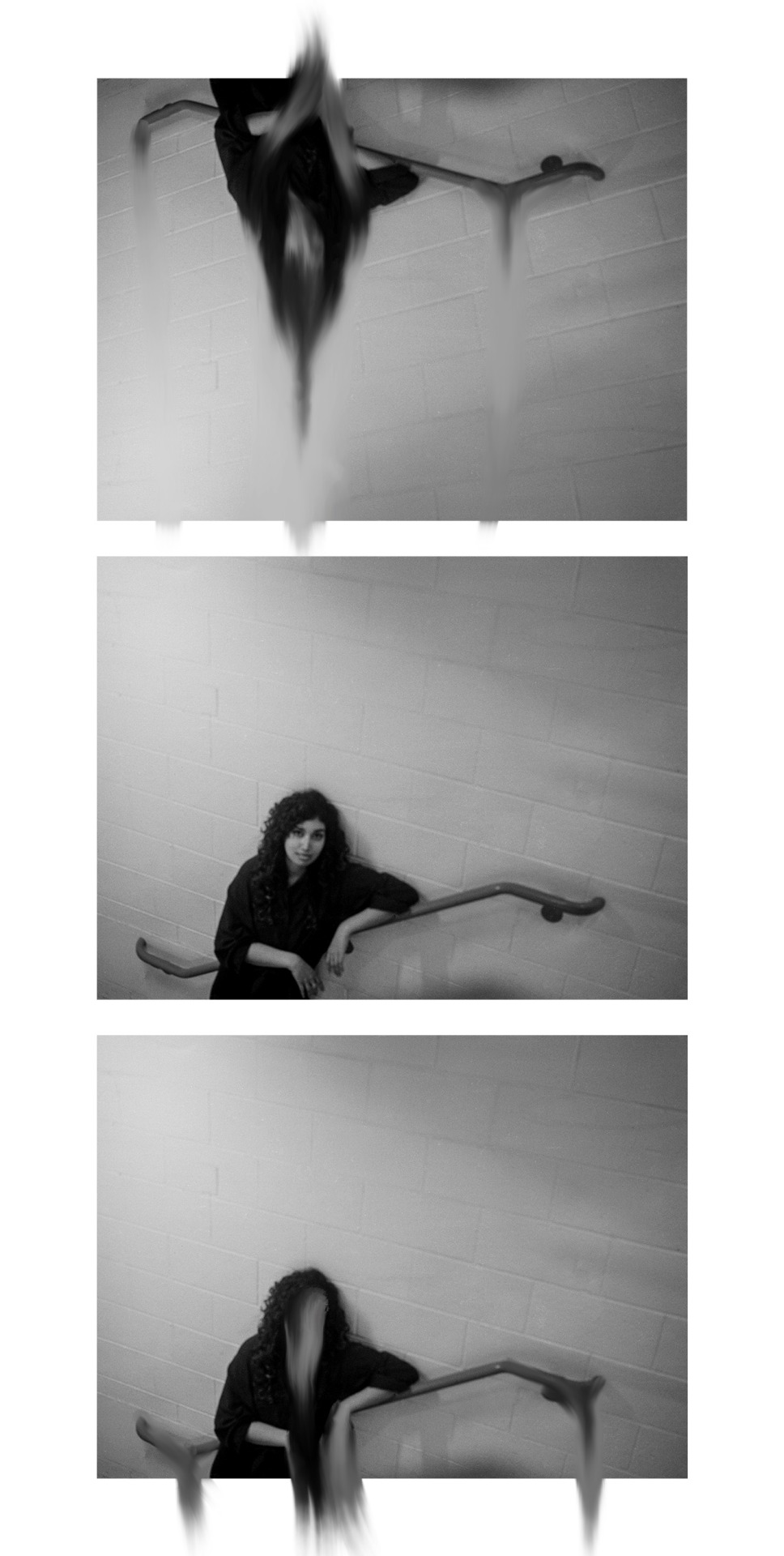
i’m bursting out of myself
#this was part of my final for med format#saic#school of the art institute chicago#edit#photography#film photography#b&w film#b&w
3 notes
·
View notes